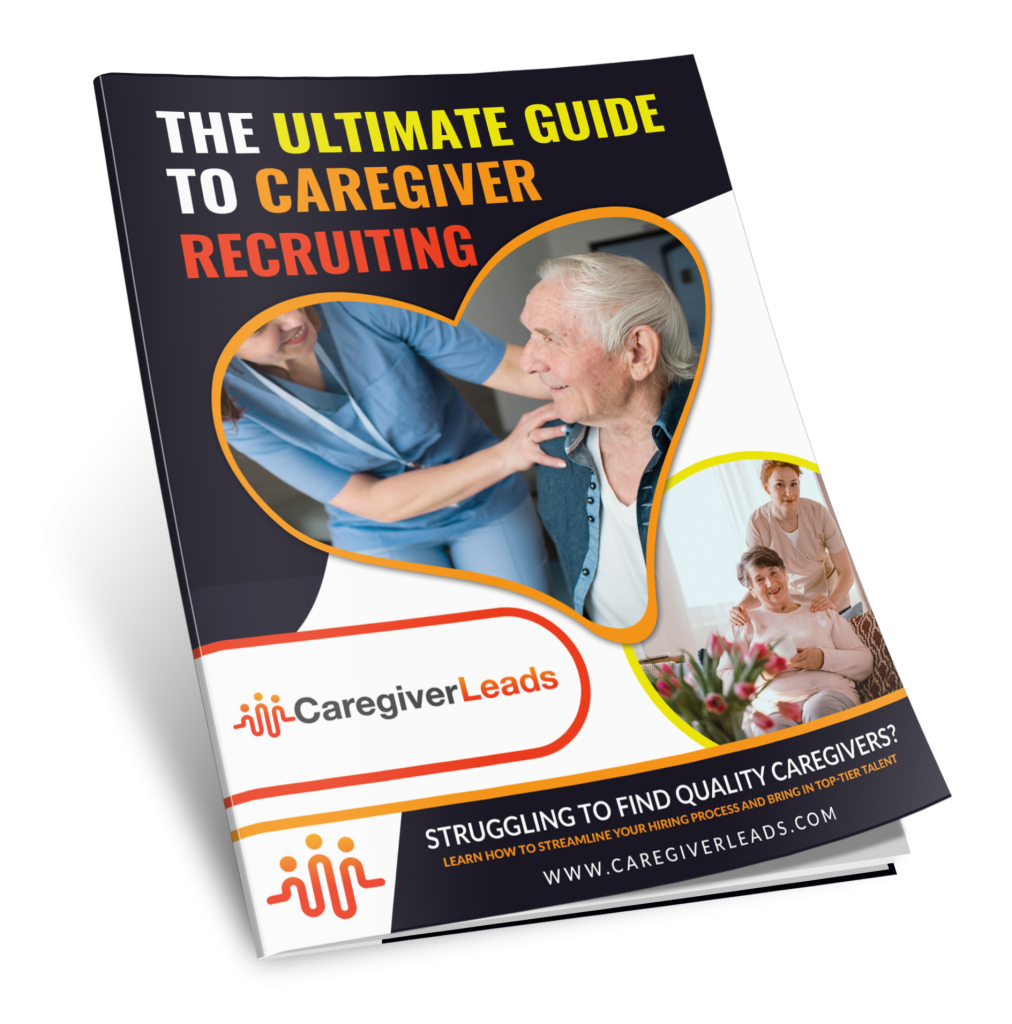Recruiting qualified caregivers is one of the biggest challenges faced by agencies today. It’s not simply about finding people who want to work, it’s about finding those who truly fit. Many agencies spend hours sorting through resumes, conducting interviews, and still end up with applicants who don’t meet the core caregiving requirements.
The main reason? An inability to target the right candidates. Most recruitment platforms and job posting methods cast too wide of a net. While that might seem like a good way to get more applicants, it often leads to unqualified leads, wasted time, and higher turnover rates.
To attract caregivers who are truly skilled, compassionate, and reliable, agencies need a focused and community-driven approach. This blog explores why caregiver recruitment often fails, what agencies can do differently, and how a more targeted process can bring in three times more qualified caregiver applicants without exhausting resources.
1. Casting Too Wide a Net The Core Reason Recruitment Fails
Most agencies still depend on general hiring platforms or broad job listings. These methods might reach hundreds of people, but only a small fraction of them are actually suited for caregiving roles.
Here’s what typically goes wrong:
- Lack of specificity: Generic job descriptions fail to communicate the values, patience, and empathy required for caregiving.
- Irrelevant applicants: A wide reach attracts people looking for any job, not specifically a caregiving role.
- Wasted screening time: Recruiters spend hours filtering through resumes that don’t meet the small caregiving qualifications.
When recruitment is too broad, agencies end up missing the ideal candidates, the ones who understand the emotional and physical responsibilities of caregiving.
A more refined strategy doesn’t necessarily mean reaching fewer people, it means reaching the right people, those with the heart and dedication needed for quality care.
2. The Limitations of Traditional Job Ads for Caregiver Recruitment
Many agencies rely on traditional methods such as newspaper ads, flyers, or local job fairs. While these methods once worked, they rarely deliver results today. The problem isn’t visibility, it’s inefficiency.
Traditional ads tend to:
- Reach a generic audience instead of caregivers who have relevant training or certification.
- Lack personalization, failing to connect emotionally with candidates who view caregiving as a calling rather than a paycheck.
- Offer limited tracking or feedback, making it difficult to improve future recruitment campaigns.
As a result, agencies get applicants who may not understand the caregiving profession’s emotional depth, commitment level, or technical skills. This mismatch leads to short-term hires and constant recruitment cycles that drain time and resources.
3. The Importance of Strengthening Local Community Reach
Caregiving is not a remote profession, it’s a deeply local one. Clients prefer caregivers who know their neighborhoods, understand their cultural values, and can provide comfort that feels personal.
But, many agencies suffer from limited reach in their local communities. They depend on impersonal job boards rather than engaging directly with nearby institutions or local talent networks. Strengthening your community presence can make a significant difference.
Here are some effective approaches:
- Partner with local training centers or certification programs to connect directly with qualified caregivers entering the workforce.
- Host community events or volunteer initiatives that show your agency’s commitment to care and compassion.
- Share caregiver stories from your current team and authentic voices resonate more than generic recruitment messages.
By becoming a trusted name within the local community, agencies can attract caregivers who already understand and value the caregiving culture of people who are in it for more than a paycheck.
4. Strategic Targeting Focus on Quality Over Quantity
A smarter caregiver recruitment process focuses on targeting caregivers based on specific traits and values, rather than work experience. Compassion, patience, reliability, and adaptability are often more important than technical skills alone.
How to target more effectively:
- Refine job descriptions: Highlight your agency’s mission, values, and client-focused approach to attract candidates with similar beliefs.
- Install screening questions that assess soft skills like empathy and problem-solving.
- Use personality-driven assessments to check emotional resilience and caregiving mindset.
When agencies recruit for values as well as skills, they build stronger teams that last. Candidates who identify with your agency’s purpose are far more likely to provide consistent, compassionate care and stay longer in their roles.
5. Building a Sustainable Caregiver Recruitment Pipeline
Recruiting shouldn’t stop when a position is filled. The most successful caregiving agencies create a continuous pipeline of qualified candidates who are ready when new clients come on board.
A sustainable caregiver recruitment pipeline can be built through:
- Relationship management: Stay connected with potential caregivers even after the hiring season ends.
- Caregiver referral programs: Encourage your current caregivers to refer friends or peers they trust.
- Ongoing engagement: Send newsletters, offer training sessions, or invite caregivers to community events.
Consistency ensures that agencies don’t have to start from scratch every time they need to fill a role. Instead, they maintain a warm, ready-to-hire pool of caregivers who already understand the organization’s mission and expectations.
6. Why the Right Caregiver Fit Matters More Than Ever
A well-matched caregiver doesn’t make clients happy; they also make operations smoother, reduce turnover, and enhance your agency’s reputation. The right caregiver embodies compassion, reliability, and professionalism.
When agencies focus on targeted recruitment, the benefits go far beyond staffing:
- Improved client satisfaction: Families receive consistent, high-quality care.
- Lower turnover: Caregivers who align with your mission stay longer.
- Better work culture: Teams built around shared values foster collaboration and trust.
Recruiting the right caregiver is about building relationships, not filling positions. The process takes time, but the payoff long-term commitment and satisfied clients is worth every effort.
7. Turning Recruitment Challenges into Growth Opportunities
While the competition for caregivers continues to rise, the challenge presents an opportunity for agencies to rethink and refine their recruitment methods.
Instead of broad outreach, agencies should focus on:
- Community-based strategies that emphasize connection and trust.
- Personalized communication that speaks to caregiver motivations and values.
- Consistent nurturing of caregiver relationships to ensure retention and engagement.
By taking a targeted and thoughtful approach, agencies can overcome the limitations of traditional hiring methods and build a reliable, motivated caregiving workforce.
Final Thought: Caregiver recruitment doesn’t have to be overwhelming. The key lies in targeting smarter, not broader focusing on caregivers who share your values and truly want to make a difference. With the right strategy, your agency can transform recruitment challenges into lasting success stories.
Ready to Strengthen Your Caregiver Recruitment Strategy?
At Caregiver Leads, we understand how challenging it can be to find caregivers who are both qualified and committed. Our mission is to help agencies adopt smarter, more human-centered recruitment strategies that focus on quality, not quantity.
If you want to attract caregivers who are a perfect fit for your agency and community, visit Caregiver Leads to learn more about proven recruitment solutions that connect you with the right candidates without wasting valuable time or resources.
Frequently Asked Questions
- Why do most caregiver recruitment efforts fail?
Because they target too broadly. Many agencies reach a large pool of applicants but fail to attract caregivers with the right experience, empathy, and motivation needed for quality care.
- How can agencies identify qualified caregivers more effectively?
By refining job descriptions, focusing on values-based hiring, and using structured screening questions that assess soft skills, reliability, and emotional intelligence.
- Why is community involvement important in caregiver recruitment?
Caregiving is personal and local. Agencies that engage with community programs, events, and training centers build trust and naturally attract more dedicated caregivers from the area.
- Is it better to hire quickly or to hire the right person?
Hiring quickly may fill gaps temporarily, but hiring the right person ensures long-term stability, consistent care quality, and reduced turnover.
- How can agencies maintain a consistent caregiver pipeline?
Stay connected with previous applicants, launch caregiver referral programs, and invest in long-term relationship-building to ensure you always have reliable caregivers ready to join your team.



